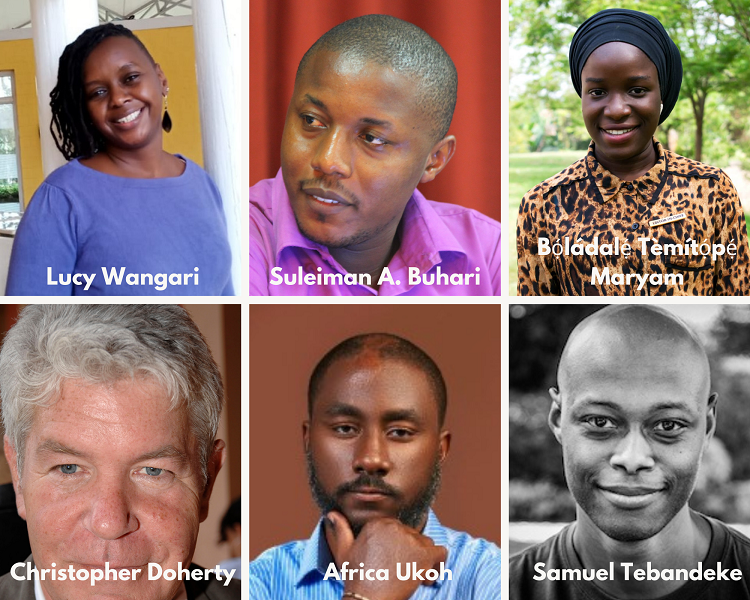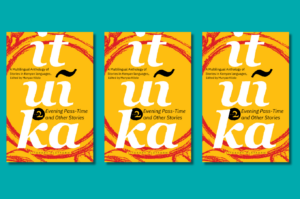
Short stories by Kenya’s Lucy Wangari, Nigeria’s Bọ́ládalẹ́ Tèmítọ́pẹ́ Maryam and Suleiman Aigbe Buhari will be adapted for film by American screenwriter Christopher Doherty, Ugandan filmmaker Samuel Tebandeke, and Nigerian screenwriter Africa Ukoh, respectively. Engaging Borders Africa is the powerhouse behind the adaptations.
Engaging Borders Africa is a project of STRADA Development Initiative, which aims to foster a culture of non-violence through storytelling. Their objective is “to enhance social inclusion by generating and popularizing organic counter-narratives to violent extremist thinking and hate speech through stories and short films by creatives from Nigeria, West Africa and the continent.”
Here are details on the selected stories:
- This Side of the Sun which was originally The Sound of Silence by Lucy Wangari (Kenya). The story “follows a by no means muted victim of multilevel violence, sharing her traumatic story in the aftermath of her beloved sister, Njeri’s, death during a period of political hate.” [Read the story.]
- Hate is like Party Jollof by Bọ́ládalẹ́ Tèmítọ́pẹ́ Maryam (Nigeria) “explores ethno-religious hate between the Yoruba and Hausa communities in Ibadan.” [Read the story.]
- Travelling by Suleiman Aigbe Buhari (Nigeria) uses “the metaphor of the road to animate all the drama around a young girl who, as yet, does not know her father has been killed by militant extremists.”
Engaging Borders Africa’s administrative team, led by Nigerian writer Richard Ali, include Janice Malachi, Muazu Habibu, and Sada Malumfashi. Ali, an accomplished novelist, is particularly excited about what film brings to the imagination of fictional narratives. He remarks in a press statement:
“I am very excited about the film component; film, with its mix of dialogue, the visual, sound, and language, presents a powerful medium for getting counternarratives across to an African and diverse audience. In my thinking, whether in Ukraine or in Nigeria, ‘borders’ are often locations of ideological, linguistic and even ethno-religious contestation but we as creative people must subvert this, making borders a scene for engagement and cooperation. We have already demonstrated that stories can explore, educate and change perspectives on violent extremism, radicalization and hate speech in our 30 stories from Nigeria, Kenya, Mali, Burkina Faso, Niger, and Ivory Coast; now we will see how much more resonant our stories will be using the short film genre, still based on these powerful continental stories and a very capable team behind Engaging Borders.”
Congrats to the authors of the selected stories! For more details on the project, go here.









COMMENTS -
Reader Interactions